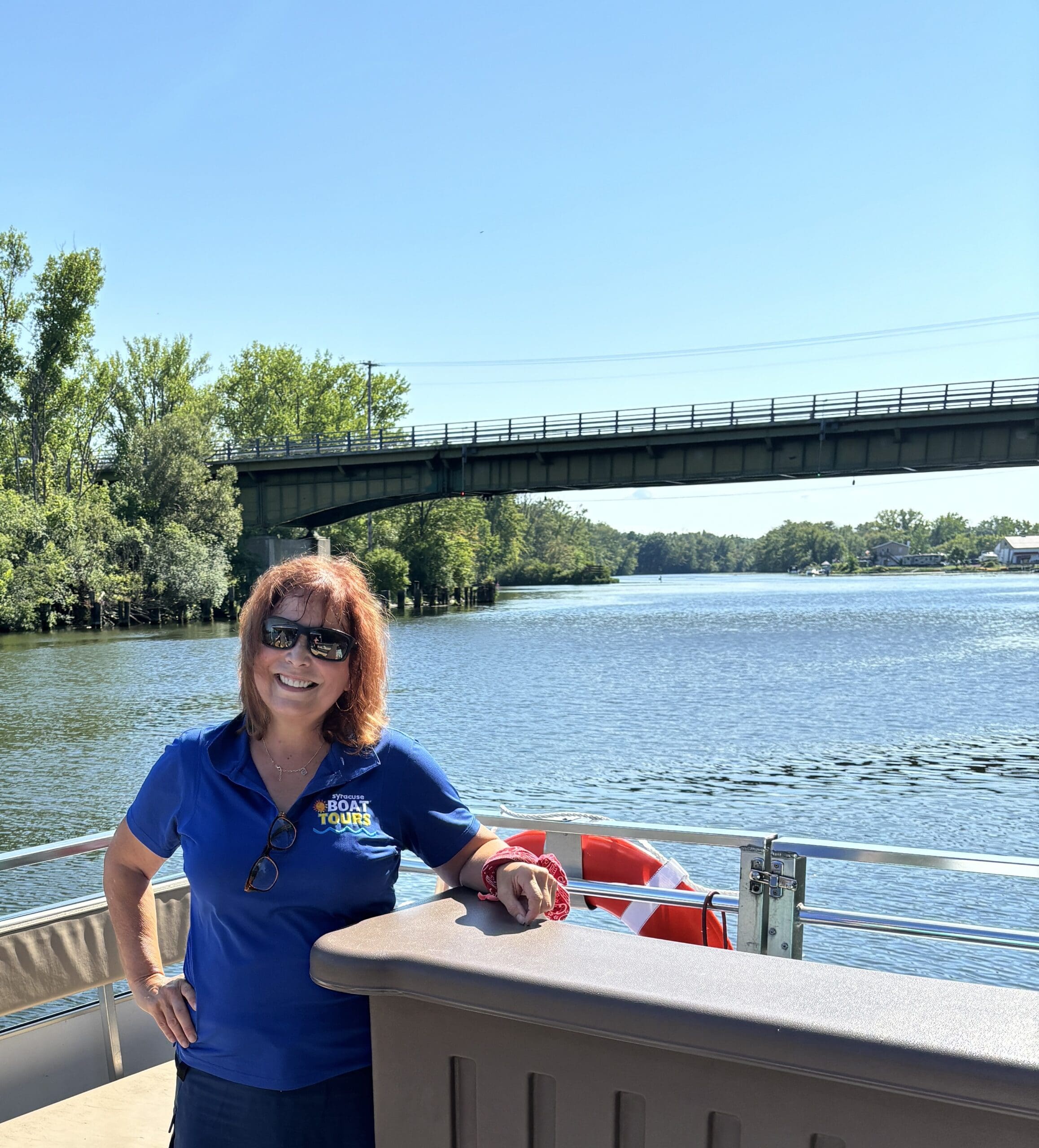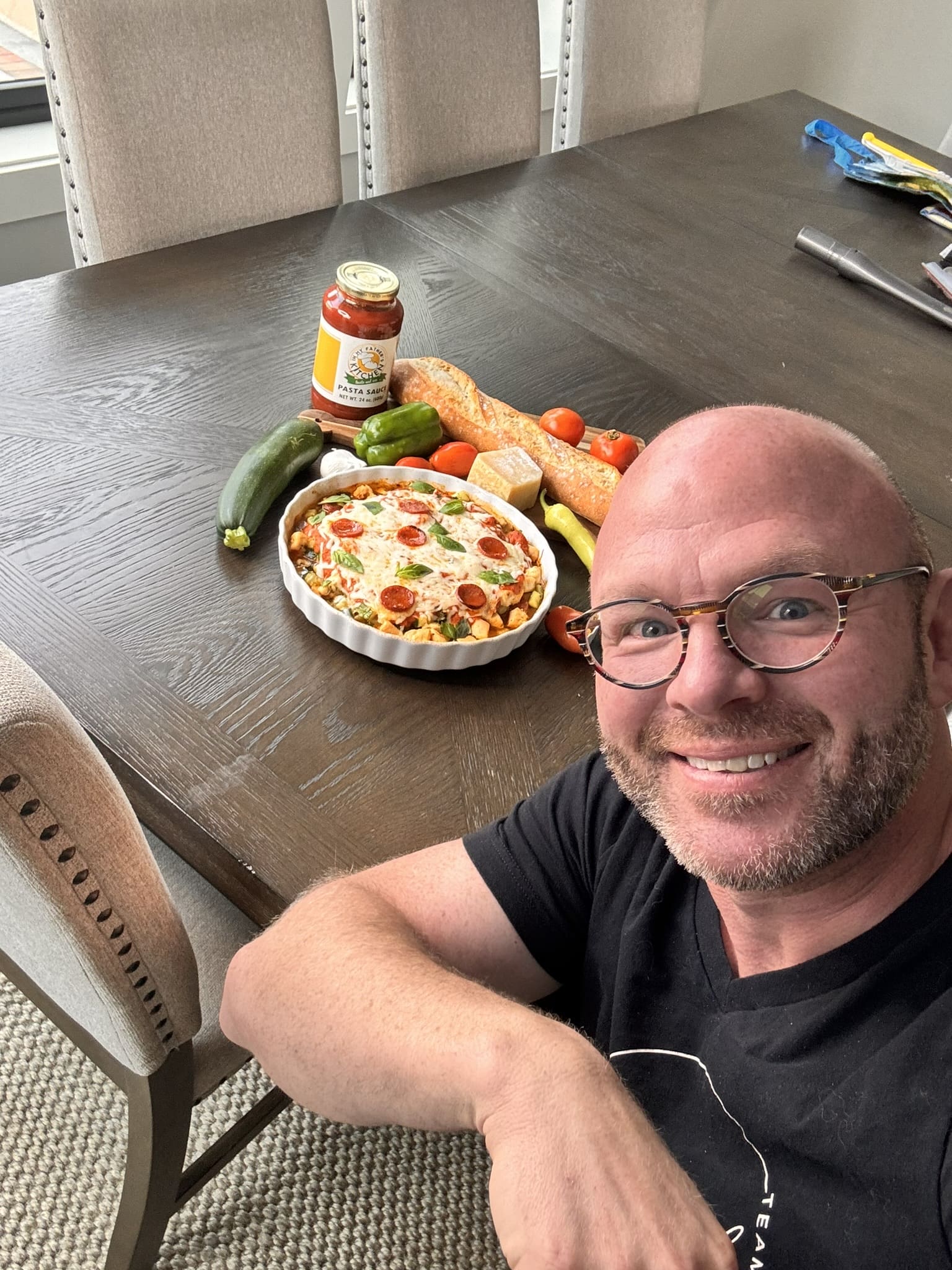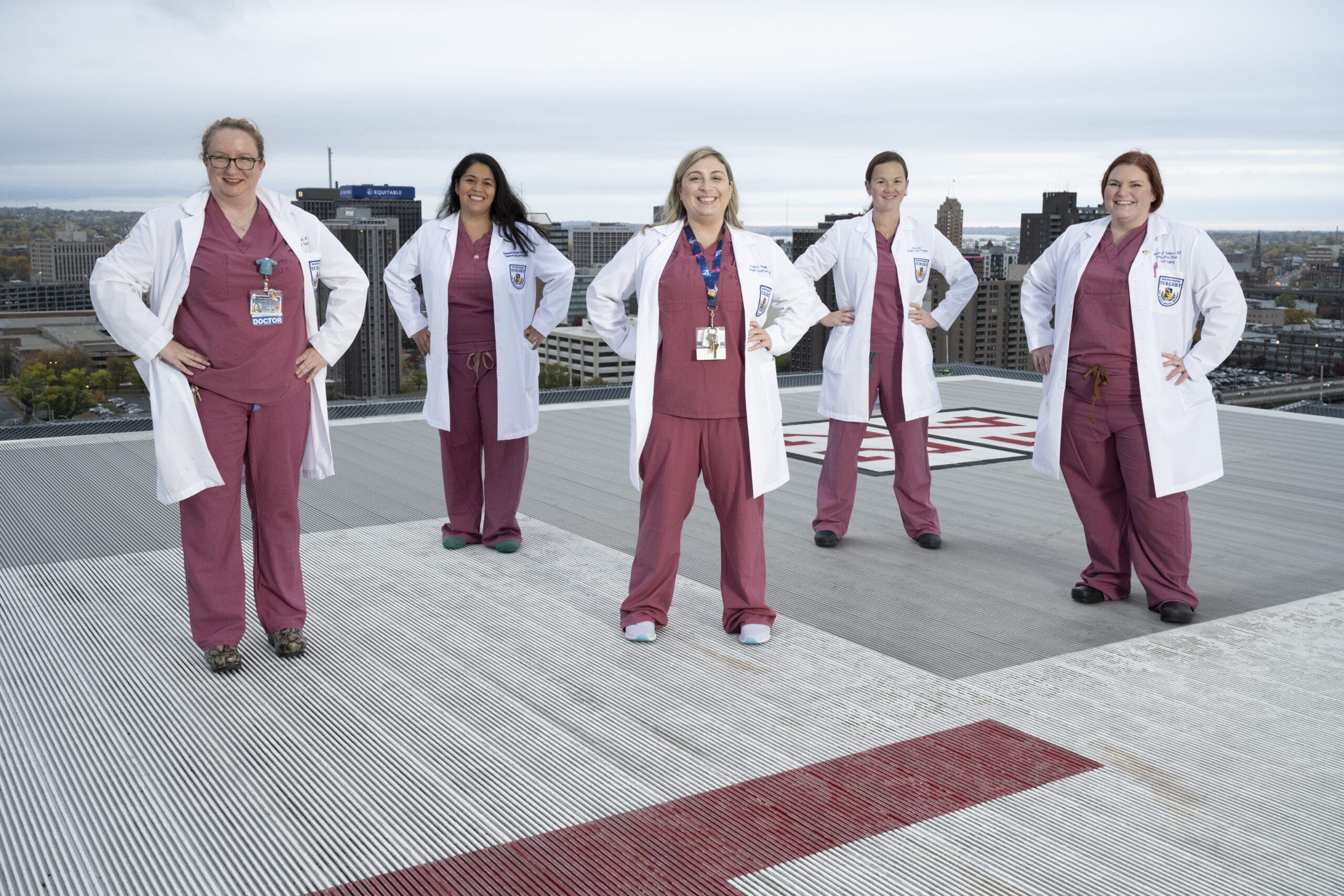Bringing Syracuse HOPE
By Lorna Oppedisano | Photography by Alice G. Patterson
“It’s important to figure out what matters the most to you and try to verbalize that for yourself,” said Ocesa Keaton, the executive director of Greater Syracuse HOPE. “You never have to share it with anybody. But if you’re able to identify that and verbalize it for yourself, I think that would help you find the most fulfillment in your life.”
For Ocesa, it’s about helping people find a voice.
From pointing out inequalities in her high school to attending law school to finding her way into the human services sector and her current position with HOPE – which stands for Healing, Opportunity, Prosperity, Empowerment — that’s been her personal mission statement.
“Advocating for those who need the most help — that’s really been my driving purpose in just about everything that I’ve done,” Ocesa said.
A born advocate
Throughout her life, Ocesa naturally noticed injustice and wouldn’t stand for it.
“When you have that type of personality, people always say, ‘You should be a lawyer,’” she remembered.
So, when she graduated from Henninger High School, Ocesa wanted to be an entertainment lawyer.
After she completed undergraduate studies at Clark Atlanta University, she took a year off to return home and study for the LSATs. During that hiatus, she worked as a care manager at the Salvation Army, her first exposure to the human services field.
“It was an eye-opener — a completely different type of field and concept,” she said. “But I did enjoy it.”
When she returned to school, this time at Western State College of Law in Los Angeles, she became even better acquainted with the human services sector. While completing her first and only year at law school — a field she eventually realized wasn’t a good fit for her — Ocesa was diagnosed with lupus.
Being a full-time student, she wasn’t allowed to work. So, she found herself seeking assistance in an unfamiliar health care system. Since she didn’t have health insurance, some of the clinics she visited turned her away.
“My inability to navigate that system almost cost me my life,” she said, “because by the time I really did get help, my kidneys were shutting down.”
Through the Veteran Affairs system, Ocesa’s father, a veteran, was able to connect her with a hospital where she received care. During her five-day stay, Ocesa met a social worker who explained what social work entailed and encouraged Ocesa to return home to a state with more health care options.
Thinking back, Ocesa described the whole experience as a blessing in disguise that ended up directing her down the right career path. Though she wasn’t happy in law school, she initially didn’t want to give it up. She was the first person in her family to attend graduate school and her parents had made sacrifices so she could attend.
“In my mind, there was no way I could pick up the phone and say, ‘It’s not for me. I don’t want to go to law school and I don’t know what I want to do,’” she remembered. “I just felt like I’d be like this big disappointment.”
An introduction to HOPE
When she came home, Ocesa also returned to the human services sector. She gained experience working for a couple organizations, earned a master’s degree in social work from Syracuse University and began working for the city of Syracuse.
While the social worker who’d inspired her was a micro social worker — someone who helps people on an individual level — Ocesa went into macro social work.
“Macro is when you take a look at how systems interplay with communities and the community is your client,” she explained.
When she worked for the city of Syracuse, part of Ocesa’s responsibilities included maintaining good relationships with the community. That prompted her to attend community meetings, where she eventually became aware of Greater Syracuse HOPE Ocesa began to learn more about the initiative from Helen Hudson, then Syracuse Common Councilor-At-Large, and got involved by volunteering her time and input.
“Just helping people who are most impacted by poverty, I thought that was a wonderful concept and a wonderful idea,” Ocesa said.
The story behind the mission
HOPE was formed in 2015 by multiple community stakeholders from different sectors in Central New York, to “bring our diverse residents and stakeholders together to impact systems and create effective pathways of opportunity, resulting in a community with an inclusive future,” according to the organization’s website. The efforts are funded by Governor Cuomo’s Empire State Poverty Reduction Initiative.
The group did a lot of work before bringing on an executive director in April 2017, Ocesa explained. With the help of a parttime coordinator, they put together listening sessions throughout the city and organized a summit.
While Ocesa was familiar with the organization through her position with the city of Syracuse, she also felt the health problems she’d had in L.A. gave her a unique perspective. Though she hadn’t been happy in law school, she’d felt it was her only option.
The experience instilled in her the compassion to understand the motivation behind people’s actions when they have seemingly limited options, she explained.
“I didn’t grow up with money. But the poverty that I experienced when I was in law school, it just felt different,” she said. “I felt, at times, hopeless.”
Since her position was implemented, she’s worked to help the organization take shape and form. She assembled a community advisory panel a few months ago that’s been instrumental in helping with outreach, she said.
“They represent the community in the everyday people who feel the effects of poverty the most,” Ocesa said, adding that they have ambitious goals, many of which provide awareness to the community on topics that fall under HOPE’s four focus areas of economy, education, health and housing.
“In each of those focus areas, we have indicators that we look at to see if we’re making an impact,” she said.
Another effort Ocesa’s been leading is the selection of the community organizations HOPE will partner with in the future. Last fall, they put out a request for proposals for community partners. They went through a review process, bringing some partners back to the table to help tweak the proposals to fit the vision of HOPE.
The overall goal of these partnerships is to build community by strengthening community assets, Ocesa explained.
“Instead of looking at it from a deficit model — and this is the social worker in me kicking in — we’re forcing the community to look at themselves, ourselves, from a strengthbased model,” she said. “What are the existing assets we have in the community that are working and can be strengthened or scaled to larger initiatives or programs?”
This strategy can be divided into a few different pieces, she explained, including looking at how HOPE can help fill existing gaps in the community; building neighborhoods by strengthening communal relationships and teaching people to lead; and looking at what grassroots agencies could potentially collaborate.
“That was one of the things that came from the listening sessions: agencies need to stop working in silos,” Ocesa said. “They need to talk to each other, so service delivery can be more efficient and productive.”
Along with those efforts, Ocesa researches other cities that have similar initiatives to discover best practices and serves as the face of the organization, meeting with other agencies that share in the mission. In the future, she’d like to have more time to connect with the community, too.
One of the most challenging aspects of the job is trying to make sure people understand the purpose of HOPE or any antipoverty initiative, Ocesa said.
“I feel like people only pay attention to the work that I’m trying to do when negative numbers come out,” she said.
She explained that sort of attention isn’t from a place of support to the cause.
“I’m not the answer to poverty. HOPE is not the answer to poverty. Poverty is something that’s been in existence for a long time,” she said. “I always try to tell people that it wasn’t one thing that got us here, so it won’t be one thing to get us out of poverty. So, the question should never really be, ‘What is HOPE doing to get rid of poverty?’ The question should be, ‘What are we doing to build our community resources and community assets so that we mitigate some of the issues surrounding poverty.”
The answer is more conversations and openness to recognizing biases and the roles they play, she explained, along with challenging ourselves to be more inclusive, from an individual or organizational level.
Getting to know Syracuse
Along with a job that aligns with her mission statement of advocating for those with less of a voice, Ocesa follows that mission through board involvement, too.
“Being involved, that’s just good citizenship,” she said. “That’s just the price you pay for the luxuries that you get in America.”
The boards she serves on speak to a common theme, she explained. Leadership Greater Syracuse satisfies civic engagement; YWCA stands for equality and the dismantling of racism; and Salvation Army Young Leaders Advisory Council is doing the most good, she said.
When she’s not volunteering or spending time with her friends and boyfriend, local comedian Travis Blount, Ocesa has been making a concerted effort to reacquaint herself with her city.
“Syracuse really is a tale a two cities,” she said, explaining that while the city faces problems she helps to solve at work each day, it also has attributes that didn’t exist a few years ago, like a growing art scene. “So, I literally look at all this disheartening information every day and still try to find the positive in it — because there’s always some positive to be found.” SWM





